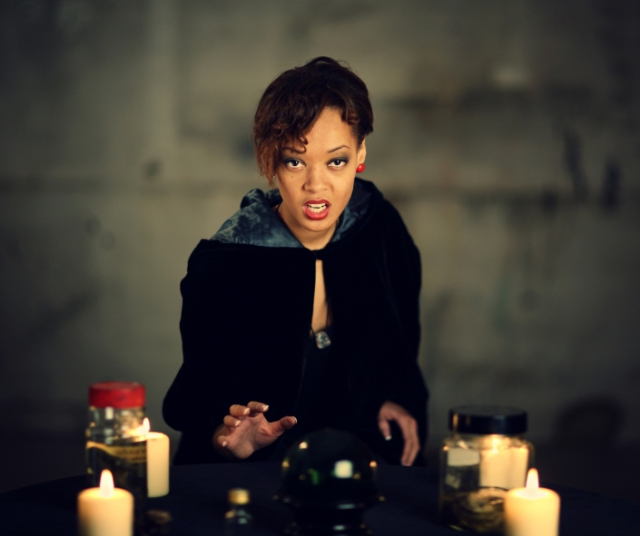Since time immemorial, the belief in witches capable of performing witchcraft has fascinated and terrified societies around the world. Throughout history, these mysterious figures have been the subject of myths, legends and fears, inspiring both reverence and repulsion. In this article, we will delve into the belief in witches, examining its origins, cultural manifestations, contemporary perceptions, and the debate between superstition and reality.
Belief in Witches and Warlocks.
The belief in warlocks and witches has deep roots in human history and culture, dating back to ancient times where magic and superstition dominated human thought. In many cultures, certain people were believed to possess supernatural powers that allowed them to influence the physical and spiritual world through rituals, spells, and incantations. These individuals, known as sorcerers or witches, were feared and respected equally, as it was believed that they had the power to do good or evil according to their will.
Belief in witchcraft and magic was closely linked to the religious and spiritual beliefs of ancient societies. In many pagan cultures, nature was believed to be full of spirits and deities that could be influenced or controlled through magical practices. Witches and wizards were seen as intermediaries between the natural and supernatural worlds, capable of communicating with spirits, predicting the future and performing miraculous cures.
Cultural Manifestations of Belief in Witchcraft.
The belief in witches has given rise to a wide variety of cultural manifestations around the world, from ancestral rituals to representations in literary and cinematic works. In many cultures, wizards and witches are considered intermediaries between the natural and supernatural worlds, capable of communicating with spirits, predicting the future and performing miraculous cures.
Witchcraft has also played an important role in literature, film, and other art forms, where it has been portrayed as both a benevolent and evil force. From the benevolent witches of fairy tales to the evil sorceresses of horror movies, the figure of the wizard or witch has been a source of inspiration and fear for generations of people around the world.
Contemporary Perceptions of Witchcraft.
Although the belief in witches has lost much of its influence in modern societies, some contemporary perceptions about witchcraft and magic still persist. In many communities, especially in rural and traditional areas, belief in witchcraft remains strong, and witches are consulted to solve problems and perform protection rituals.
However, in most Western societies, witchcraft is considered more of a historical curiosity or esoteric practice than a genuine belief in the ability to perform sorcery. Witchcraft has been widely studied by anthropologists, sociologists, and religious scholars, who have examined its origins, practices, and meanings in various cultures and contexts.
The Debate between Superstition and Reality.
The debate about the existence of witches capable of performing witchcraft continues to be a controversial and controversial topic in modern society. On the one hand, there are those who maintain that witchcraft is simply a superstition without a scientific basis, a relic of the past that has no relevance in the modern world. They argue that the supposed abilities of witches and wizards are the result of deception, illusions or misunderstandings, and that there is no solid evidence to support the existence of supernatural powers.
On the other hand, there are those who firmly believe in the reality of witchcraft and magic, arguing that there are inexplicable phenomena that cannot be explained by conventional science. These people maintain that witches possess special knowledge and abilities that allow them to manipulate invisible energies and affect the physical world through mystical and esoteric practices.
Beliefs and Modern Practices of Witchcraft.
Although witchcraft has lost much of its influence in modern society, various forms of witchcraft-related beliefs and practices still persist throughout the world. In many communities, especially in rural and traditional areas, witchcraft remains an integral part of everyday life, with warlocks and witches consulted to solve problems and perform protection rituals.
Additionally, witchcraft has seen a resurgence in recent decades, especially among spiritual and alternative communities. Many people are exploring witchcraft practices as a way to connect with nature, honor their ancestors, and explore their own power and potential.
Witchcraft in Popular Culture.
Witchcraft has been a source of inspiration for popular culture, with numerous depictions in books, movies, television shows, and video games. From the benevolent witches of fairy tales to the evil sorceresses of horror movies, the figure of the wizard or witch has captured people's imagination and generated a wide range of emotions and reactions.
Furthermore, witchcraft has been the subject of study and debate in fields such as anthropology, sociology and gender studies, where its role in society and its impact on people's lives has been examined. Through these investigations, a deeper understanding has been gained of the complexity and diversity of beliefs and practices related to witchcraft around the world.
Conclusions: Between Mystery and Reality.
Ultimately, the belief in witches capable of witchcraft is a complex and multifaceted topic that encompasses a wide range of perspectives and opinions. Whether viewed as an outdated superstition, a long-held cultural tradition, or a legitimate form of knowledge and power, witchcraft remains a topic of fascination and debate in modern society.
By exploring its origins, cultural manifestations, and contemporary perceptions, we can gain a deeper understanding of the complexity of this belief and its impact on the world around us. As we continue to explore belief in witches and witches, it is important to keep an open mind and respect the diverse perspectives and experiences related to this fascinating human phenomenon.






